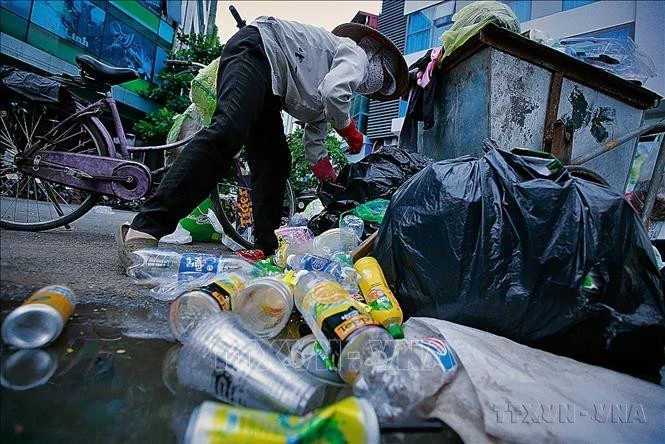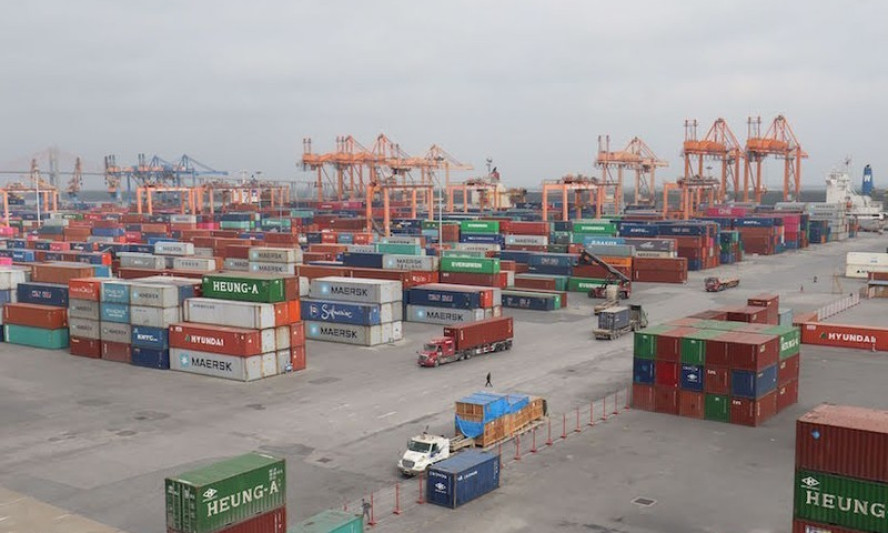Policy reform – paramount in Vietnam’s plastic waste reduction: experts
Dr Nguyen Trung Thang and a research team from the Institute of Strategy and Policy on Natural Resources and Environment have proposed a three-pronged approach that combines policy reform, market incentives and public awareness improvement to combat Vietnam’s growing plastic waste crisis.

According to the Ministry of Natural Resources and Environment, some 1.8 million tonnes of plastic waste are discharged into the environment in Vietnam annually. Each household consumes about one kilogramme of plastic bags monthly while current waste management practices remain concerning, with 90% of plastic waste buried, landfilled, or incinerated, and only 10% recycled.
Over the recent past, there has been an upward trend in non-biodegradable waste from household plastics and plastic bags, estimated to constitute 6-8% of domestic solid waste in landfills.
Through the ministry's project on reducing ocean plastic waste in Vietnam, Thang stated that policy reform is the most important solution. He advocated the establishment of standards and certification for plastic alternatives, enabling sustainable products to enjoy environmental protection incentives and marketing support.
The research team recommends implementing a progressive taxation schedule to curb the production, import, and consumption of single-use plastics and non-biodegradable bags, coupled with higher environmental protection fees. This approach aims to provide a financial motivation for businesses to transition to environmentally friendly alternatives.
Besides, the proposal includes financial support for scientific research and technological development by manufacturers of alternatives, grants for startups providing sustainability solutions, and tax incentives for companies adopting sustainable production methods or switching to eco-friendly materials.
To enhance market acceptance of alternative products, the researchers suggest fostering innovation in design, production, and marketing through providing capital assistance for startups, innovation funds, and environmental design awards. They underscored the importance of strengthening cooperation among businesses to expand the market for alternative products and studying the establishment of an official alliance of sustainable enterprises who will join hands with the State to settle plastic pollution issues.
They said raising consumers’ awareness is a long-term solution in which specific guidelines should be penned for voluntary actions to reduce the use of single-use plastic. Additionally, educational programmes on the adverse effects of such products on human health and the environment should be carried out at schools and education establishments.






